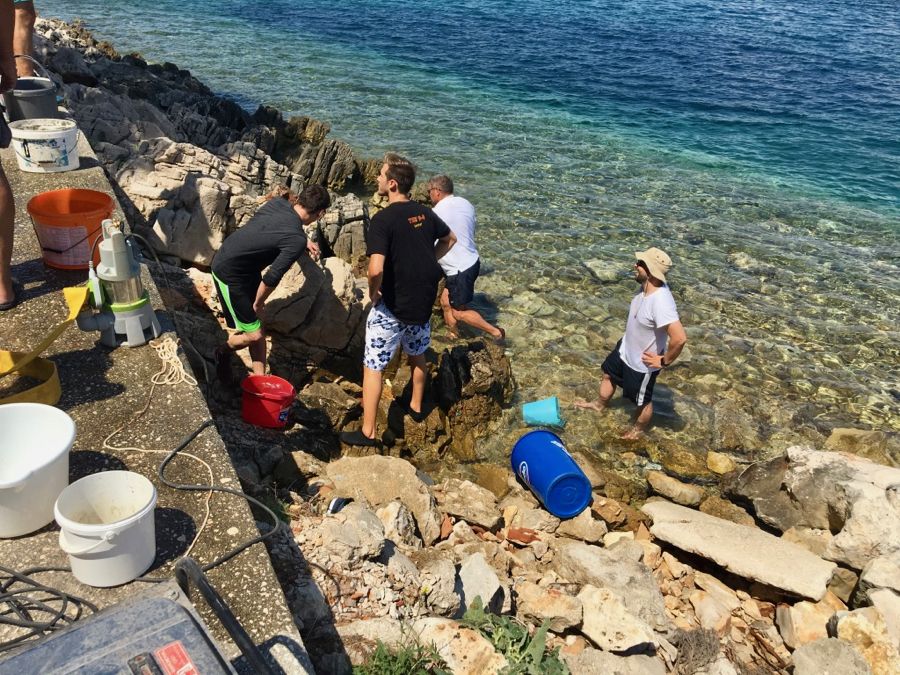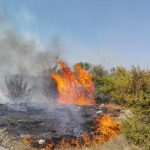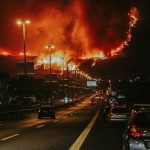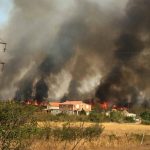July 13, 2018 — A small island off the coast of Zadar called Iž needed some gumption and plenty of luck as locals formed a bucket brigade to extinguish an unexpected wildfire.
Mali Iž’s residents preempted what could have been the first wildfire of Croatia’s summer Friday afternoon.
Shouts of “Požar!” [Fire!] echoed through the village at about 2 p.m., as flames climbed up an overgrown hillside about 50 meters from the shore.
The shouting activated a response built — thankfully — on instinct instead of experience. The island off the coast of Zadar has not experienced a major wildfire in years.
Locals scrambled for buckets then ran towards the billowing smoke. Trucks and cars zoomed through town, horns blaring as a de facto signal.
Within minutes, a brigade of about 30 people formed a single-file line leading up to the flames then shuffled sent buckets of sea water back and forth.
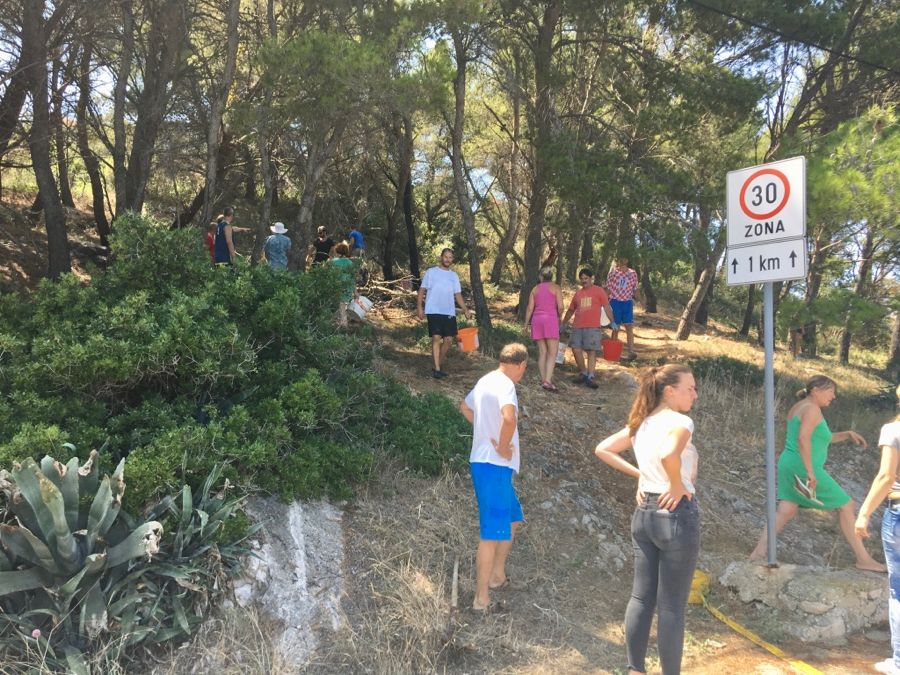
Within an hour, the fire was under control.
Iž’s official volunteer fire department showed up with its truck half an hour later. They took a longer, slower route; some of the island’s paths and tight corners are too narrow for their fire truck. After commending the Maloižani on a job well done, they soaked the cinders for good measure.
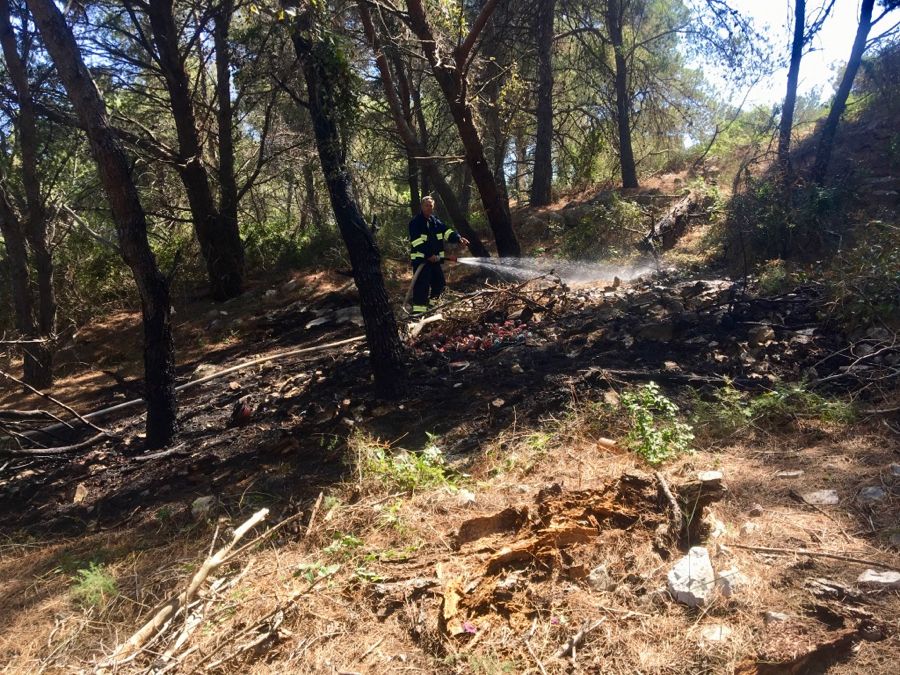
The source of the fire remained unknown. An exploded “damižana” (an old-fashioned wine vessel) glinted in a column of sunlight. Some concluded the glass magnified the light onto dry grass, a literal version of stinging ants in grade school.
The threat of a wildfire looms over most of Croatia’s islands. Basic infrastructure such as navigable roads remains a luxury. Of the country’s 47 inhabited islands, 27 do not have a direct municipal water supply.
Some have aging populations, not mobile enough for impromptu firefighting. (Iž is on its way to joining them).
The Croatian coastline saw an unusual boom in wildfires during last year’s long, arid summer. Split’s hillsides burned for days last July, as did the hinterlands of Zadar and Šibenik — fires which Mali Iž’s residents watched from a safe distance, praying they’d never face the same trouble.
The Maloižani stood watch to ensure a second fire didn’t break out. Finally, they disbanded, their heads shaking in disbelief.
“Thank god the fire was so close to the sea,” one said as he carried his buckets home. “If it was about 100 meters higher up the hill, nobody would’ve been able to stop it.”
A potential crisis averted, due as much to luck as diligence. But life on the razor-thin edge between paradise and a burning inferno continues.
